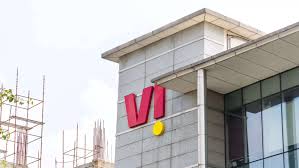In a major relief for Vodafone Idea (Vi), the Supreme Court on Monday allowed the Department of Telecommunications (DoT) to re-examine the company’s adjusted gross revenue (AGR) dues, citing the “peculiar facts and circumstances” of the case. The decision offers the financially stressed telecom operator a long-awaited opportunity to seek a recalibration of its massive dues that have weighed on its balance sheet for years.
A bench led by Chief Justice B.R. Gavai said there was no reason to prevent the Union government from reconsidering the amount owed by Vodafone Idea, especially since the issue now falls within the Centre’s policy purview.
“In the peculiar facts of this case, we see no reason to prevent the government from reconsidering the issue,” the Chief Justice stated while delivering the order.
Following the verdict, Vodafone Idea’s shares surged 3.85% to close at ₹9.99 on the BSE, after touching an intra-day high of ₹10.27. The ruling comes as a lifeline for the debt-laden company, which has been grappling with spectrum and AGR-related liabilities of nearly ₹1.91 lakh crore.
The 2020 Supreme Court judgment had earlier fixed Vi’s AGR dues at ₹58,254 crore, intended to bring closure to a two-decade-long dispute over the definition of adjusted gross revenue. However, in August 2025, the DoT issued a fresh demand of ₹9,500 crore, prompting Vodafone Idea to challenge the move in court, arguing that the department was unlawfully reopening settled issues.
During Monday’s hearing, Solicitor General Tushar Mehta, representing the government, highlighted that the situation had evolved considerably since the original litigation. He noted that the Centre now holds a 49% stake in Vodafone Idea, emphasizing that any disruption to the company’s operations could impact competition in the telecom sector and the interests of its nearly 200 million subscribers.
The court’s direction effectively grants the government policy discretion to revisit Vi’s dues. Legal experts welcomed the ruling as a pragmatic move, allowing flexibility in reassessing the liabilities.
“The order gives the government room to rework Vodafone Idea’s AGR dues. Now that it is part-owner, the figures can be recalculated without being bound by earlier judgments,” said Mukund P. Unny, advocate-on-record at the Supreme Court.
However, the bench clarified that the relief was being extended only due to Vodafone Idea’s unique circumstances, notably the government’s significant shareholding and the large public interest involved. This means that other telecom operators like Bharti Airtel are unlikely to benefit from similar reassessments.
For the government—which became Vi’s largest shareholder after converting dues into equity—the ruling validates a policy-led reassessment. For the company, it provides much-needed breathing space as it faces heavy repayments in FY26. Analysts said the verdict could ease immediate financial stress and improve liquidity, allowing Vodafone Idea to focus on growth and network expansion.
An analyst from a leading brokerage noted, “This development will reduce uncertainty and support Vodafone Idea’s ongoing capital expenditure plans.” The company has already committed around ₹50,000 crore over the next three years to upgrade its network and close the gap with Reliance Jio and Bharti Airtel.
In a statement to the exchanges, Vodafone Idea said it welcomed the Supreme Court’s decision and looked forward to collaborating with the DoT “to resolve the matter in the interests of our nearly 200 million subscribers.”

